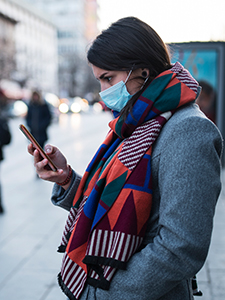How to Identify Coronavirus Scams
Blog posted On March 18, 2020

The novel coronavirus (COVID-19) outbreak has caused stock market shock, hand sanitizer and cleaning supplies to sellout, and major healthcare disruptions. It has also created a new opportunity for fraudsters to steal under the cloak of coronavirus panic. Federal Trade Commission (FTC) Chairman Joe Simmons warned in a news release, “what we don’t need in this situation are companies preying on consumers by promoting products with fraudulent prevention and treatment claims.”
Here are some of the common scams the FTC has seen since the coronavirus outbreak:
- Phishing emails claiming to be from the CDC or World Health Organization – always check the sender’s email address and never click on links or download attachments from senders you do not know.
- Offers for treatments, vaccinations, and cures – at the time of this publication there is no cure or vaccination for coronavirus. If you believe you are showing symptoms of the virus, please go see your doctor for the appropriate diagnosis and treatment.
- Stock-related promotions – if you receive an email or mailer asking you to invest in a particular company’s stock because it is about to recover, this is likely a scam. Do not make any stock market moves without consulting with your financial advisor or other trusted professional.
- Emails from human resources departments asking for usernames or passwords – this is an attempt to steal passwords. Always check the sender’s email address and if you are confused about a communication you receive, call your human resources department to verify.
- Emails claiming that downloading a program will expedite research to find a cure – this is not true and will install malware on your computer. Never click on links or downloads within an email if you do not recognize and trust the sender.
- Robocalls saying you’ve tested positive for the coronavirus – especially if you have not seen a healthcare professional. If you do get a test for the coronavirus, your doctor or a representative from the office will call you directly, not distribute private information through a robocall.
From touting miracle cures to promoting investment opportunities, scammers have plenty of avenues to lure consumers into their schemes in the midst of current coronavirus uncertainty. Protect yourself and your finances by never clicking on suspicious links or downloading attachments, always checking the sender’s email address and verifying information over the phone whenever possible.
Sources: Money.com
